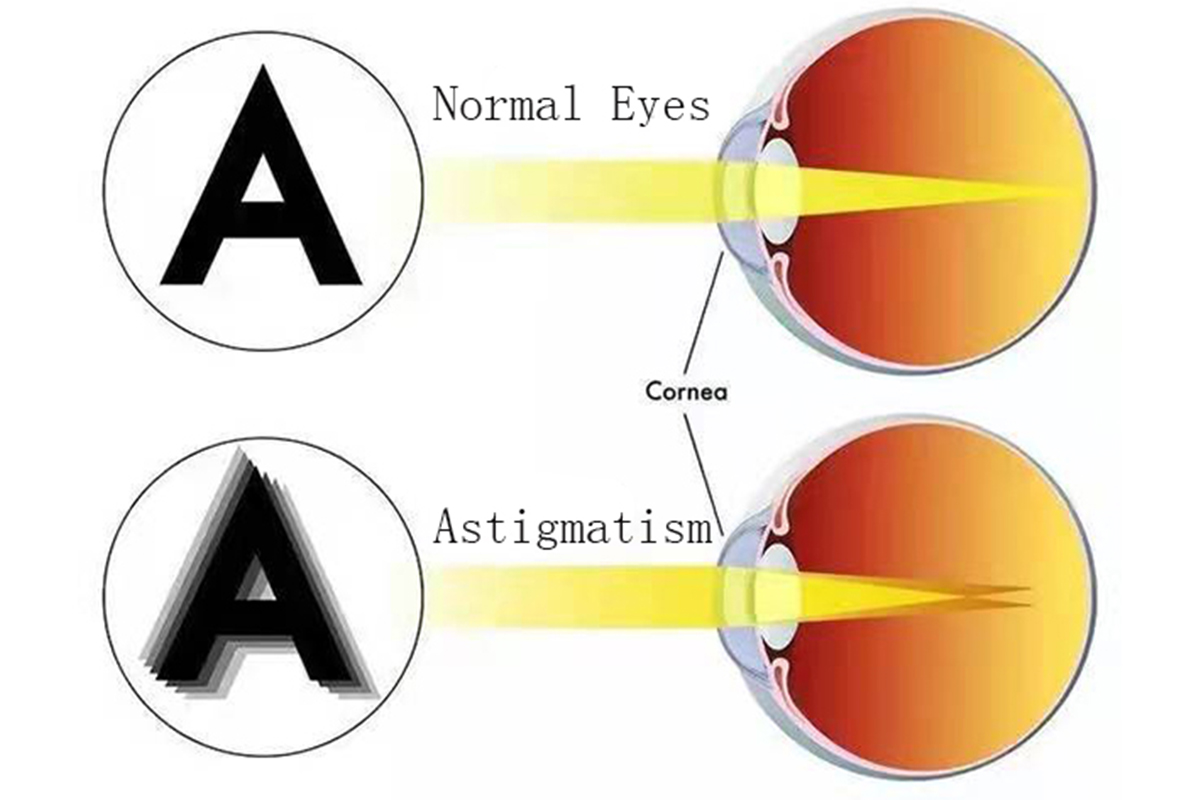
What Is Astigmatism?

Mention astigmatism, I believe many friends will not feel strange. Actually, the astigmatism that has more than 9 adult eyes to exist different degree, among them there is about 10-20% astigmatism degree number is more than 100 degrees. Are you surprised by this number? See here, I think we all want to know whether their eyes exist astigmatism, to introduce a small test, can initially test the results.
Test steps:
① Remove glasses (whether frame glasses or contact lenses);
② Hold the mobile phone at eye level, move the mobile phone horizontally from far to near, and keep the position when you can just see the line;
③ Cover one eye gently and look at the picture below with one eye;
④ Distinguish the color of the dotted line in the picture.

Self-test conclusion:
● If all dotted lines are evenly arranged, without special distinction of depth, there is no obvious astigmatism in the eyes.
● If the dotted line is particularly clear and black in a certain direction with one eye, it indicates that the eye has a certain degree of astigmatism.
Note: The above tests are preliminary. If need to understand eye each parameter further, the proposal undertakes comprehensive medical optometry to normal eye hospital!
Through the above tests, you may have a preliminary understanding of whether you suffer from astigmatism. However, most astigmatism patients have little understanding of the harm and correction of astigmatism. Therefore, we need to know some important astigmatism knowledge clearly.

What is astigmatism?
Astigmatism is a type of refractive error (myopia, farsightedness, astigmatism).
Under normal conditions, the surface of the cornea (the refraction interface of the eyeball) is spherical, like a leather ball, and the curvature of the surface of different sections is exactly the same, allowing images to be accurately and clearly projected onto the retina.
For astigmatism patients, the refraction interface of their cornea is uneven and looks like a football.The deviation between the two radians causes the refraction to be different, causing the light entering the eye from all angles to focus not on one point, but on multiple points. As a result, the image becomes blurred.
Causes and symptoms of astigmatism
Astigmatism basically is congenital form, read a book for a long time, use a computer to wait for general irrelevant.
Astigmatism degree is also relatively stable, generally not like myopia with time and age growth and deepening. However, if astigmatism is caused by certain eye diseases, such as keratoconus, the degree of astigmatism may be deepened.
Symptoms of astigmatism include blurred vision of both near and far objects, as light appears to "melt", and can become worse at night.
The deeper the astigmatism is, the more blurred the distant scenery will be, and even distorted the image may appear in severe cases. If astigmatism is not corrected promptly and accurately, it can cause visual fatigue and a series of related symptoms, such as dizziness and headache
